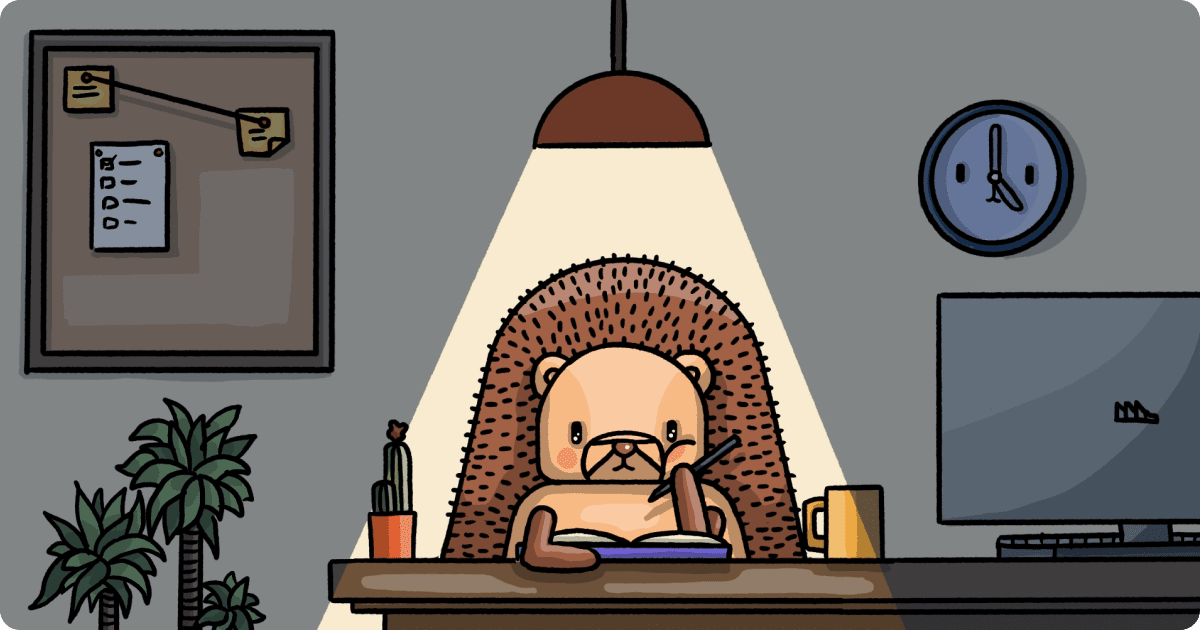What motivates me as a CEO
Oct 07, 2022

PostHog got pretty far (17k customers across all our products, went through Y Combinator, seed, series A and B raised, $MM revenue) before I really figured out what motivates me.
Before we started – building the exact place I'd want to work
I've worked at a bunch of startups before. I learned and did some cool things at each, but they all had many flaws - usually through a lack of organization design.
It is a lot of fun getting things right, and this motivated me early in the company. These specifically stand out:
Writing stuff down in a handbook rather than handling everything 1:1 in meetings. So much win.
Sharing everything internally and most of it externally too. And seeing how this helps people work autonomously.
Working on something for end users. I wanted to make something that people buy rather than something that we sell.
Having a board that is focused on the long run.
Hiring people that we are excited to work with. No matter how well you manage stuff, 90% of problems can be avoided by getting the right people in the first place.
Paying everyone according to a system versus random bargaining. This cuts down churn and politics.
Dealing with customers totally transparently. For example, when we launched, none of our competitors had pricing on their pricing page. It's a lot of fun having a community weigh in on what we build.
Neither Tim (my cofounder) nor I can imagine working anywhere else.
When we launched – being grateful that anyone cares
In the early days, we pivoted many times, mostly without any funding. I spent most of my day trying to get anyone to talk to us about our bad ideas, and building new websites for the latest pivot. Tim built entire products every few weeks like it was nothing. All while our savings were dwindling.
The feeling when it started working was magical.
Overnight (after this), we were flooded with people to talk to. Companies were getting real value out of the product. Since we grew a lot, we more or less went from no code existing, through Seed / Series A and B within 12 months (it was announced a little later).
Now – taking pride in building a business that does stuff properly
So, we had a lot of hype. But we hadn't focused on revenue yet.
Last summer, we got a lot of requests for a paid product (extra features or people wanting us to host it for them). At the same time, lots of investors were interested and my daughter was very ill. Since I had to look after her, we felt we had to choose either revenue or fundraising.
We picked revenue.
By the summer of 2022, it meant the business was real. We got to default alive, with conservative assumptions. Revenue was growing very quickly. Our goal is $100M ARR by 2026 and we're on track. We got different and helpful product feedback, which we acted on. Our open source and free user growth sped up too as an indirect result.
We've been much more mindful of spend for the last year, despite all of our fastest growth coming in this time, including revenue. We're getting leaner and fitter over time.
Something else changed too. For me, I felt a new wave of confidence – because I know that PostHog is now in our control, versus that of a VC.
It is incredibly motivating to reach this point. I'm getting more and more proud of what we're working on. Being lean has forced us to prioritize.
We haven't just prioritized what to build, but – more importantly – the people we hired. The bar has gone up. It's very hard to get hired here.
And, also, I really want to beat other companies
When I was (a lot) younger, all I cared about was cycling. I did a lot of time trialling, where someone sets off every minute to race around the course as fast as possible.
The moment you see another rider ahead of you, it suddenly gets easy and you magically roar past them - every time.
Since we started, there have always been companies I've wanted to beat. So much. Both those one step and many years ahead of us. I've been thinking about why.
It's all the same thing
I've realized that everything is under the same umbrella.
The people I want to beat represent the opposite of what we want to do. They:
- are closed source
- aren't transparent with customers
- have incredibly large teams that don't ship much stuff
- are sales led
- provide products that aren't extensible
- have terrible documentation
- are messy internally
- have a bland corporate vibe
I want to show to the world that you can beat the biggest companies, specifically by doing right by our users and our team.
Doing a good job by not doing the list above has led to a strong brand and has made us realize we should keep being ourselves. It has often meant short term pain for long term gain. And we're going to keep it that way.

Subscribe to our newsletter
Product for Engineers
Helping engineers and founders flex their product muscles
We'll share your email with Substack
